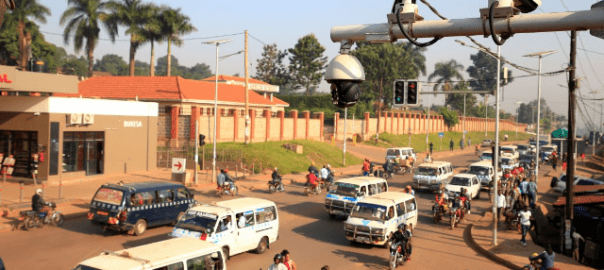By Kim Harrisberg | South Africa correspondent
|
Privacy experts are calling for citizens to be protected from growing surveillance in Africa, following a new report by the Institute of Development Studies (IDS) and the African Digital Rights Network (ADRN). Their report, “Mapping the supply of surveillance technologies to Africa” focuses on Nigeria, Ghana, Morocco, Malawi and Zambia importing surveillance tech from countries including the U.S., Britain, China, Israel as well as the EU amounting to more than $1bn every year. Digital rights researchers say citizens are already working to protect their identity using VPNs, encrypted messaging and privacy browsers. The researchers called for more robust laws to ensure that surveillance be used to benefit public security rather than monitor dissenting voices.
Traffic flows under the surveillance closed-circuit television camera (CCTV) system along Bakuli street in Kampala, Uganda August 14, 2019. REUTERS/James Akrena |
|
For example, South Africa’s Department of Justice published new surveillance laws in September after an earlier act allowing for the interception of communication was challenged in court by journalists. The new act includes provisions so journalists and lawyers are notified when they are being surveilled by the state. “There’s a need for data protection laws which spell out how people’s data is kept (for legal interception of communication), who can access it and conditions of access,” Jimmy Kainja, the author of Malawian research in the report, told Context. The use of surveillance for harassment, detention and torture violates international human rights law and the tech companies’ policies, he added. “Overall, there’s a need to balance state security/national interest and human rights.”
A boy using an umbrella makes his way through a road that was flooded after torrential rain at a traditional market in Seoul, South Korea, August 9, 2022. REUTERS/Kim Hong-Ji |



